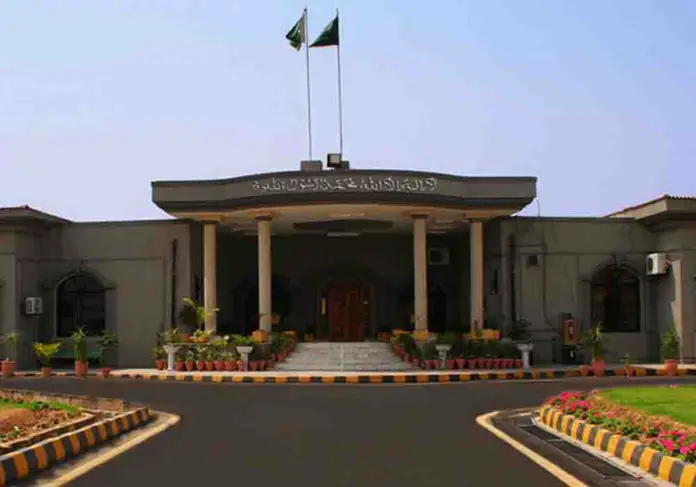The Registrar Office of Islamabad High Court (IHC) on Friday raised objections on the intra-court appeal of Ministry of Defense in a case pertaining Naval sailing club and Naval farms.
The petition had prayed the court to turn down the decision of single-member bench in the above case. The petition said that the declarations given in the decision had affected the morale of forces. The court of Chief Justice Athar Minallah had announced its judgment on January 7 against Naval sailing club and Naval farms.
Defending the establishment of its sailing club at Rawal Lake and farmhouses on Simly Dam road, the Defense Ministry claimed that approval for land for both projects was granted by the then president and prime minister of Pakistan, respectively. It made the claim in the intra-court appeal. The appeal also asked the court to set aside the adverse findings against the navy, its former chief and all other officials, saying that the single-member bench did not consider the facts and exercised writ jurisdiction in a matter that pertained to the Capital Development Authority (CDA).
Chief Justice Athar Minallah had, in his order, directed the CDA to demolish the sailing club and take over control of the naval farmhouses.
In the Jan 7 judgment, he pointed out that “the mandate of the armed forces of Pakistan has been described in chapter 2 of part XII of the Constitution.” The court termed it ‘an irony of fate that “the chief of naval staff and one of the branches of the armed forces i.e. the Pakistan Navy was involved in violating the enforced laws and transgressions from the mandate prescribed under the supreme law of the country, the constitution.”
But in its appeal, filed through Defense Ministry, navy contended that “while interpreting the constitutional provisions with respect to the armed forces it must be remembered that the constitution in term of article 245 requires the armed forces to defend Pakistan against external aggression, but does not direct them to give their life if required to discharge this duty, or for that matter, take the life of an enemy.”
In essence, the navy’s argument is that the constitutional provisions that require the armed forces to defend the country and act in aid of civil power when called upon to do so “are general provisions and must be interpreted with wide amplitude.”
“One dreads to think what would happen if the armed forces act upon the view that since it is not expressly mentioned in the constitution or any law that they should give their life while defending the country or take the life of the enemy, they should ensure that they defend the country without giving their life or taking the life of the enemy! Based on this view then, should the soldiers return from the line of defense because the country cannot be defended without deviation from the constitution and as such vulnerability due to violation of their oath to uphold the constitution?”







